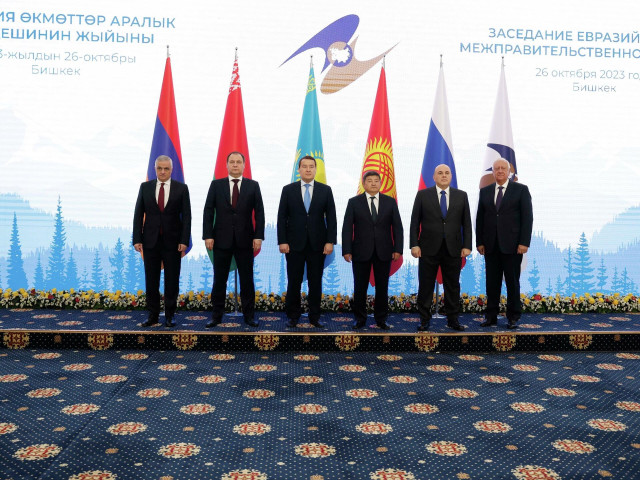
The Eurasian Economic Union (EAEU)
has great potential in promoting trade and transit, as stated by Kazakh Prime
Minister Alikhan Smailov at the extended-format meeting of the Eurasian
Intergovernmental Council in Bishkek. Prospects for cooperation extend to the
transfer of new technologies and the launch of innovative production, which now
also serve as indicators of successful economic integration. The commission is
preparing the Concept for the further development of common markets for
medicines and medical devices. Kazakhstan believes that cooperation in these
areas should focus on creating conditions for the production of cutting-edge
pharmaceuticals and equipment, rather than pursuing a unified healthcare
policy, Smailov said.
“One of the pressing issues is
the draft declaration for the medium-term period, which we are discussing. We
need to give a realistic evaluation of the present state of integration. To
this end, in May, Kazakh President Kassym-Jomart Tokayev instructed to assess the
current status of our commitments. Effective utilisation and development of
transit potential will increase trade. All cargo traffic through the territory
of the EAEU member states will be subject to traceability. At the same time, we
should introduce navigation seals in stages, ensuring maximum convenience for
businesses in our countries. In this regard, I suggest that the Commission
carry out this work while considering perspectives of businesses,” he noted.
At the session of the CIS Council
of Heads of Government, Smailov spoke about the importance of ratifying the
agreement on free trade in services promptly. He emphasized that the document
will bring cooperation between the CIS states to a new level. As an example,
Smailov cited the implementation of the Free Trade Agreement, which has enabled
member states to maintain positive dynamics in mutual trade turnover despite
global challenges. Another key task on the agenda was strengthening industrial
cooperation. The execution of the corresponding concept and the set of measures
for its development in the CIS countries will give a new impetus, Smailov highlighted.
The meeting of the CIS Council of Heads of Government resulted in a number of
documents signed particularly on enhancing interaction in geodesy, cartography
and geographic information technologies, mining and metallurgical industry, as
well as the IT sector.









